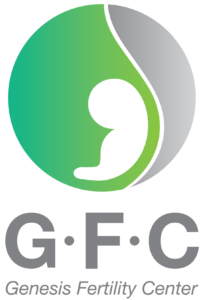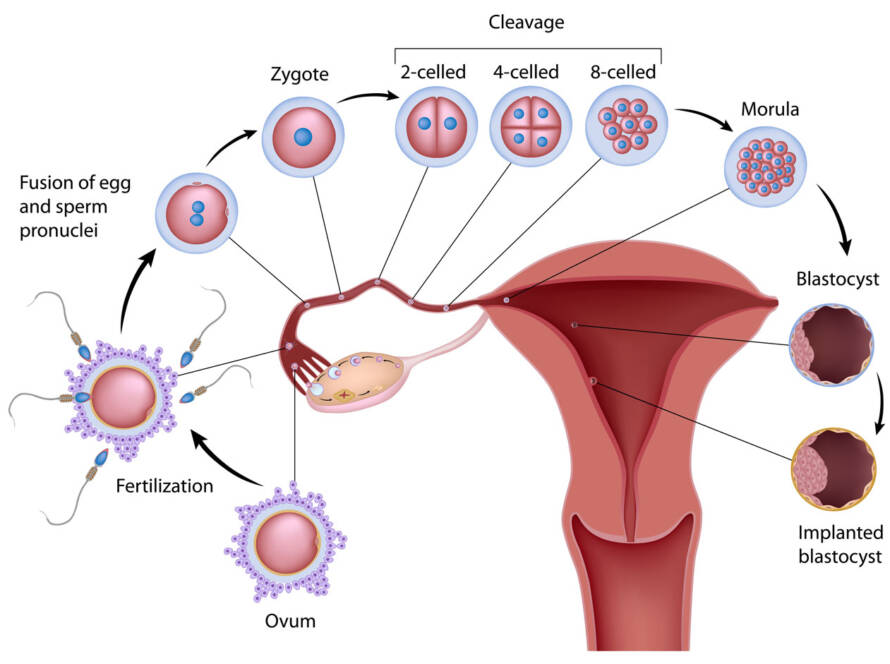Does taking birth control pills affect the process of IVF/ICSI?
Taking birth control pills increases the chances of pregnancy for those undergoing IVF/ICSI.
The act of taking birth control pills appears to be a contrary or misguided method for couples who have difficulty conceiving and wish to have a child. They decide to use assisted reproductive technologies such as in vitro fertilization (IVF) or intracytoplasmic sperm injection (ICSI). In medical term, taking birth control pills for couples who have difficulty conceiving is not intended for preventing pregnancy but rather considered as the starting point before entering the IVF/ICSI process.
Why take birth control pills? It is because controlling the timing of ovulation is crucial in the IVF/ICSI process as it increases the chances of successful pregnancy. Therefore, doctors who oversee couples who have difficulty conceiving often recommend taking birth control pills before entering the IVF/ICSI process.
How does birth control pill work?
Taking birth control pills is a method of birth control for women that involves hormones, namely estrogen and progesterone, which inhibit the function of the reproductive organs and prevent ovulation. The pill affects the thickness of the uterine lining, making it too thin for a fertilized egg to implant, or it can affect the motility of the fallopian tubes, making it more difficult for fertilization. Additionally, the pill can make the cervical mucus thicker and more difficult for sperm to penetrate. There are two types of birth control pills available:
- Combined Oral Contraceptive (COC) pills: They contain both estrogen and progesterone hormones in a single pill. These pills are highly effective at preventing pregnancy if taken regularly, and they also have the added benefit of regulating menstrual cycles.
- Progestogen-only pills (POP): They contain only the hormone progesterone. Each pack of these pills contains 28 pills and they are taken daily. This type of pill was developed to reduce the side effects associated with estrogen hormone.
What type of birth control methods do doctors use?
For the types of birth control pills used in IVF/ICSI, doctors typically prescribe combined oral contraceptive pills that contain both estrogen and synthetic progestin hormones. The effectiveness of birth control pills varies depending on the hormone levels. However, for the purpose of IVF/ICSI, doctors will use single-dose pills that contain a consistent amount of hormones in each pill to maintain hormone levels.
For the method of taking the pills, doctors will recommend taking the pills at the same time each day for those who have difficulty conceiving or for women. However, those who take birth control pills may experience minor side effects such as nausea and constipation, and in severe cases, symptoms such as dizziness or fever may occur.
How does birth control pill support the process of making test tube babies?
Normally, each ovary of a woman consists of follicles that enclose the immature eggs. When the egg matures, it is released from the follicle in a process called “ovulation.” After ovulation, the follicle ruptures and the cells of the follicle transform into a corpus luteum, which means “yellow body.” If the egg is not fertilized, the corpus luteum will degenerate within 2–3 weeks. The use of birth control pills prevents the development of the follicle and the egg inside it, and after discontinuing the pills, the ovarian cycle resumes. The results of using birth control pills for individuals undergoing in IVF/ICSI are as follows: – Birth control pills can help regulate and control the timing of egg production during ovarian stimulation.
- Birth control pills can lead to more consistent egg growth rates, increase the number of cells surrounding the follicles, and increase the number of eggs retrieved.
- Taking birth control pills can reduce the chances of developing cysts before starting ovarian stimulation. This is because the pills may help dissolve cysts that have already formed.
- Doctors can schedule egg retrieval procedures more efficiently, which is a critical component for planning the IVF/ICSI.
- Doctors can identify a patient’s normal menstrual cycle, helping them develop more effective treatments to increase the chances of successful IVF/ICSI pregnancies for individuals who have difficulty conceiving.
Who is suitable and unsuitable to take birth control pills?
- Individuals who have difficulty conceiving due to irregular menstrual cycles can benefit from using birth control to regulate their menstrual cycle and stimulate ovulation on day 2 of their cycle.
- Those who undergo IVF/ICSI and have inconsistent egg development can benefit from taking birth control to ensure consistent egg size during the ovulation stimulation phase, leading to better results.
- People who are undergoing IVF/ICSI but have a low egg count may not be suitable for taking birth control pills because they may reduce the number of eggs available for stimulation.
- People who have a history of high risk of blood clots, high blood pressure, or migraines are not suitable for birth control pills as treatment for infertility.
- IVF/ICSI People who undergo IVF/ICSI but have not successfully conceived may have their birth control pill regimen canceled because it may have unwanted effects on the IVF/ICSI process.
For the use of birth control pills for IVF/ICSI before embryo transfer, the doctor will prescribe birth control pills to the woman. She will need to inform the doctor of the first day of her menstrual period. Then, the doctor will schedule a blood test appointment for a general health check, including an ultrasound. If the results are normal, the doctor will advise to start taking birth control pills on the fifth day of the menstrual cycle.
What is the duration of taking birth control pills?
The duration of taking birth control pills before starting IVF/ICSI may vary depending on the discretion of the fertility specialist, as there is no clear time frame. Typically, taking birth control pills lasts about 21–42 days, and the doctor may recommend stopping them for 1–3 menstrual cycles before starting the treatment. This is to help the doctor determine the normal menstrual cycle of each individual and to improve the chances of successful treatment.
In summary, what are the benefits of birth control pills?
For those who undergo IVF/ICSI, the result of taking birth control pills is to suppress ovulation. Compared to women who do not take birth control pills and have irregular periods, women who take birth control pills have a greater chance of conceiving or succeeding in IVF/ICSI. This is because taking birth control pills helps maintain hormone levels in the bloodstream, which makes it easier to calculate the time of ovulation more accurately.
For couples experiencing fertility, Genesis Fertility Center or GFC is a medical service center specializing in providing advanced technology and innovation to assist in the process of reproduction. With the expertise and care of medical professionals and staff, GFC offers IVF/ICSI to help couples overcome their fertility challenges. For inquiries, please contact the call center at 097-484-5335 during business hours from Monday to Friday, 9:00 a.m. to 8:00 p.m. or Saturday to Sunday, 8:00 a.m. to 4:00 p.m.
Exclusive to customers who purchase the egg freezing and ICSI package with GFC, there is a 0% installment plan for 6 months for Krungsri credit card holders and a 0% installment plan for 10 months for credit card holders of Kasikornbank and Siam Commercial Bank.
พิเศษสำหรับลูกค้าที่เข้าแพคเกจ ฝากไข่ และ ICSI กับทาง GFC เท่านั้น
โปรโมชั่นผ่อน 0% 6 เดือน สำหรับบัตรเครดิตธนาคารกรุงศรี และ 0% 10 เดือน สำหรับบัตรเครดิตธนาคารกสิกรไทย และธนาคารไทยพานิชย์
Call Center 097-484-5335
Monday–Friday: 9.00–20.00 Saturday–Sunday: 8.00–20.00.



